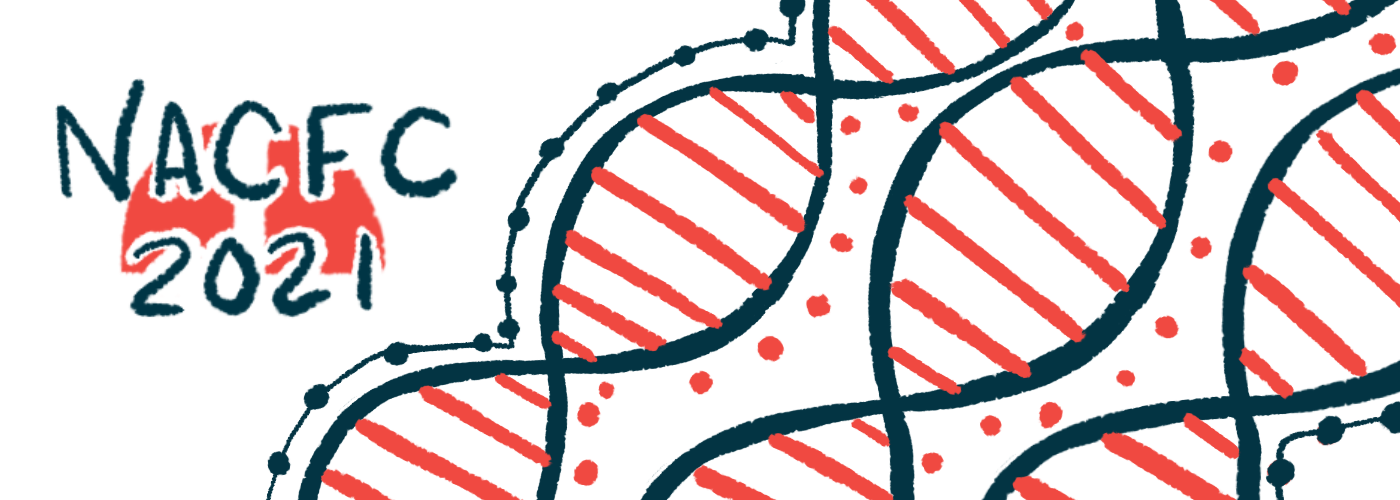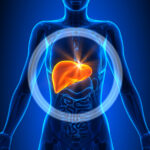#NACFC2021 – Orkambi, Symdeko May Improve Children’s Liver Health
Written by |

Treatment with Orkambi (lumacaftor/ivacaftor) and/or Symdeko (tezacaftor/ivacaftor) may lessen liver damage in children and adolescents with cystic fibrosis (CF) who have liver involvement, new data indicate.
“We detected improvements in validated noninvasive biomarkers of liver fibrosis [scarring] and cirrhosis in children and adolescents treated with” these therapies, the researchers wrote in a poster presented at the 2021 North American Cystic Fibrosis Conference (NACFC), being held virtually Nov. 2–5.
The research findings were discussed in a presentation titled “Impact of lumacaftor/ivacaftor and tezacaftor/ivacaftor on pediatric liver health.”
Orkambi and Symdeko both are combination therapies containing two CFTR modulators — medicines designed to increase the functionality of the CFTR protein, whose defect causes CF, in patients with specific disease-causing mutations.
CF is usually thought of as primarily a lung disorder, given the buildup of abnormally sticky and thick mucus it creates. But liver disease can be a serious problem in CF. Indeed, cirrhosis, a form of advanced liver fibrosis (scarring), is the third-most-common cause of death among people with the genetic disease.
While both Orkambi and Symdeko have been demonstrated to be effective at improving lung function in eligible patients, their effect on liver health is not well-understood.
Now, a team of scientists at Stanford University, in California, conducted an analysis of data for 50 children and adolescents with CF who were treated with Orkambi and/or Symdeko at their center. All of the patients were treated for at least six months, and all had their liver health assessed before and after treatment. These patients had a mean age of 11.2 years at the start of CFTR modulator treatment.
Of the 50 children, 12 had liver involvement, defined as evidence of liver damage based on imaging and/or abnormal levels of certain markers of liver health.
Analyzing data from all of the patients collectively, the researchers noted no substantial differences in the occurrence of abnormal liver health tests before and after starting on CFTR modulator treatment. More patients were treated with Orkambi only than with Symdeko only, but a total of 18 participants received both therapies.
“Significant changes” were noted among the children with liver involvement, the researchers said. Specifically, data indicated that, prior to starting CFTR modulator treatment, the levels of platelets in these children were decreasing over time. Platelets are cell fragments involved in clotting, and also are important indicators of liver and kidney health.
Notably, after patients started on the treatment, their platelet levels generally stabilized, according to Zachary Sellers, MD, PhD, a professor at Stanford University who presented the findings at NACFC.
Data also suggested that levels of ALT and GGT, two markers of liver damage, decreased after treatment with the CFTR modulators in the children with liver involvement, Sellers said. Such changes were not seen among children without liver involvement. Levels of GPR, or GGT-to-Platelet Ratio, a marker of liver scarring, also were reduced with treatment.
“We found that treatment with Orkambi and/or Symdeko improved specific … biomarkers of liver involvement,” Sellers said.
A separate study, published in August, similarly found that Orkambi could decrease markers of liver damage in patients with liver involvement, Sellers noted.
Collectively, these data suggest that “CFTR modulators may benefit CF patients with liver involvement, even independent of whether or not patients have existing lung disease,” he concluded.
Editor’s note: The Cystic Fibrosis News Today team is providing coverage of the virtual 2021 North American Cystic Fibrosis Conference (NACFC) Nov. 2-5. Go here to see the latest stories from the conference.







